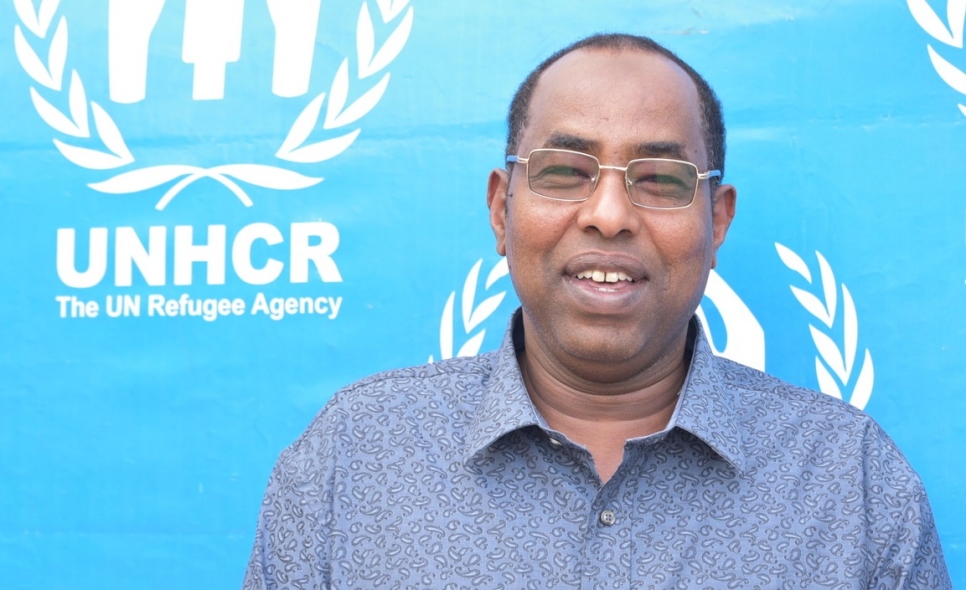UN Somali envoy asks for Canada’s assistance with refugees

The United Nations High Commissioner for Refugees’ special envoy to Somalia is urging the Canadian government to provide more aid to countries in the Horn of Africa that are struggling under the burden of Somali refugees.
Somalia has been in the throes of civil war since 1991 after its leader, Siad Barre, was overthrown.
The UN’s most recent report says the situation across Somalia “remained volatile” throughout 2017, with the height of the violence in the country’s capital city of Mogadishu. Last October, two explosions rocked the capital, killing an estimated 512 people and injuring 230 others. The UN called these bombings the “deadliest terrorist attack” in Somalia’s history. The attack is credited to terror group al-Shabab, but the group has not formally claimed responsibility.
Somalia is one of the world’s largest source countries for refugees. According to the UN, there were just under a million Somali refugees in the Horn of Africa in 2017, including roughly 300,000 living in Kenya, 255,000 in Yemen and 246,000 in Ethiopia. Two million Somalis are also internally displaced.
The country has a federal government, but many areas are controlled by rebel groups.
To curb the violence, Mohamed Abdi Affey, the UN High Commissioner for Refugees’ special envoy to Somalia, said Canada should be directly investing in Somalia to help a new government bring about peace and stability.
“Being part of the global community, it belongs to all of us to walk this painful path with the Somali people,” he said.
In 2017, representatives from the eight African countries that make up the Intergovernmental Authority on Development signed the Nairobi Declaration, an agreement to create a “comprehensive regional approach” to assist Somali refugees. The signatory countries include Djibouti, Eritrea, Ethiopia, Kenya, Somalia, South Sudan, Sudan and Uganda.
Part of their commitment was to send in a military force to keep the peace in regions of Somalia that remain under control of the federal government. What this will do, Affey said, is allow the Somali government to prepare to govern the parts of the country still under its control.
“I am of the view that if we invest in institutional building in Somalia, we will be able to address the challenges that Somalis continue to face,” he said.
But neighbouring countries are also struggling, Affey continued. Ethiopia and South Sudan, for instance, have their own internal problems, which in turn make the resettlement of refugees difficult.
“The reality is that these countries create refugees, but they host them, too. The impact on the country’s social fabric is massive.”
Sharing the burden of Somali refugees, Affey said, would fit with Canada’s international commitments. The country was one of the signatories to the UN’s first Global Compact on Refugees earlier this summer, in which member states agreed to find equitable solutions to the global refugee crisis. The plan calls for the burden of refugee movements to be equitably distributed among the world’s countries.
Canada should invest in specialized refugee streams that have helped young Somali refugees in the past, Affey said, referring to World University Service of Canada (WUSC)’s Student Refugee Program, which give refugees university scholarships so they can study a program of their choice at a partnering Canadian university. Every year, WUSC supports more than 130 refugee students at more than 80 campuses across the country.
Affey said the program has been “outstanding” for refugee youth, and he’d like to see more students take advantage of it.
“We have a limited number of opportunities here (in Canada) for young Somalis to come to Canada to train, If we could increase the slots for (the Student Refugee Program), we could get many more of them out of limbo.
“The youth of Somalia need to get an opportunity to grow Somalia.”
SOURCES: THE STAR